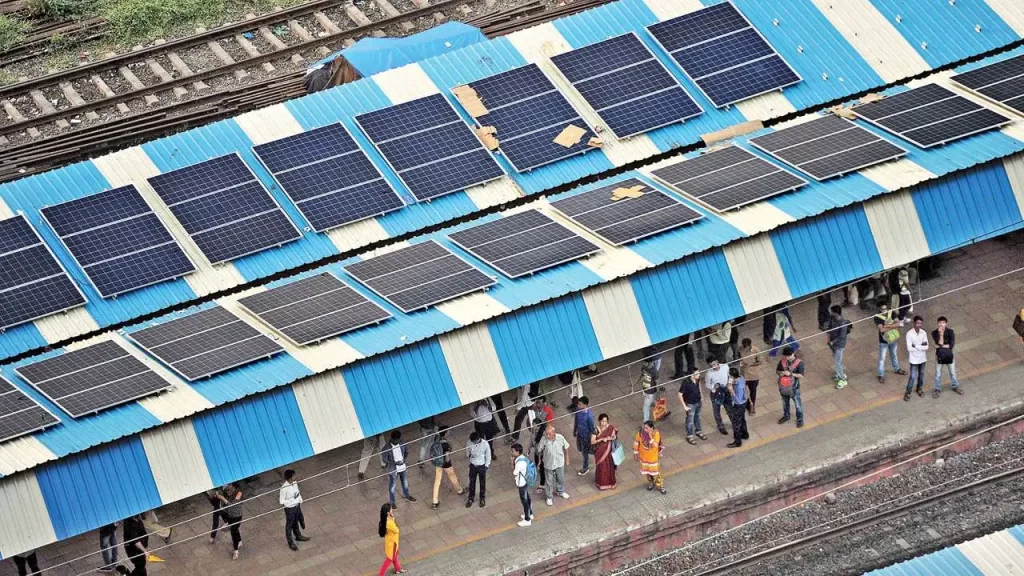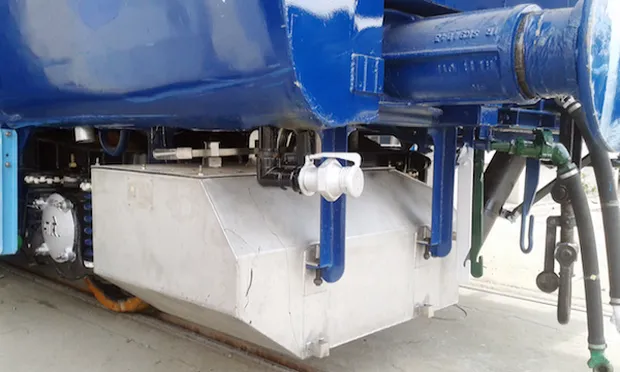7 Steps of Indian Railway to Reduce Net Carbon Emission
Introduction of NDC
The full form of NDC is Nationally Determined Contributions. The Government of India as part of national determined contribution (NDCs) has set up target of 33% emission reduction through transport section. The Indian railway has key protentional as its role major in the transport sector.
Contribution of Railway in NDC
Indian railway major contributes in the reduction of carbon foot print by the following way.
- The Indian railway set up Dedicated Freight Corridors ( DFCs ) to reduce emission by 457-million-ton CO2 over 30 year period.
- Use of renewable energy sources (solar rooftop) to its platform, staff quarters, offices etc.
- Electrification of broad-gauge line replaced by old diesel engine lines
- Use of biofuel in the traction for diesel engine
- Water waste and management system
- Adopting good practices in railway industrial units, green buildings and infrastructure to achieve environment sustainability in growth
- Contribute in Swachh Bharat Mission
- Tree plantation contributes pollution control
- Land based freight transport increases from 36% to 45% by the year 2030
The Indian railway has taken steps with initiative of environment management, energy efficiency management, water management, waste management, green certification of railway platform, policy of profit contribution towards environment, use of solar roof etc.
Net-Zero Carbon Emission
- The Indian railway has planned to reduced its carbon footprint become net zero carbon emitter by 2030.
- The Indian railway will attempt to reduce carbon footprint by using renewal energy sources.
- The IR will install renewal energy to premises about 30 MW by year 2029-30. The IR has installed 142 MW solar rooftop and 103.4 MW of Wind energy till August, 2022.
- Net carbon zero is also achieved by using Electrification of its routes by shifting its from petrol, efficiency, promotion of construction of Dedicated Freight Corridors, Green certification of Railway Establishments etc.
- The Indian railway has electrified 52,508 Route KM out of total Broad-Gauge network of 65,141 round KM (80.61%).
- If the electrification is done 100%, the demand for electricity will go up to about 72 billion units by 2029-30 from 21 billion units resulting carbon emission estimated to be 60 million ton would be offset.
Issuance of Water Policy 2017 – Effective Water Management
- The main objective this policy is to use water efficiency by supply management, installing water efficient system, water recycling plants in railway land etc.
- The water policy 2017 has been implementation to all zonal railway and production units for railway stations, trains, railway colonies etc.
- This water policy is a part of achieve 20% reduced in water consumption by 2020 by the Government of India as part of Nationally Determined Contribution (NDC).
Plantation of Tress
- The Indian railway has been planting around 1 crore trees annually since year 2017 onward in the vacant railway land and in between sections carried out by railway department.
- The forest department of state are being involved in the plantation, tree maintenance and disposal of free for commitment towards environmental improvement and sustainable development.
- The railway department has planted 72 lakh saplings during the year 2021-22.
Waste Management
- The Indian railway has set up biogas plant at more than 250 stations to manage waster and achieved waste to energy target.
- The railway has also been provided bins for dry and wet waste for waste segregation at source.
Green Certification from State Pollution Control Board since 2015
- The railway department has been certified around 700 railway stations for implementation of Environment Management System to ISO:14001.
- The railway has also achieved consent to operate (CTO) for more than 545 stations from respective State Pollution Control Board. Green certification also achieved in 31 railway buildings (including offices, training institutes, hospitals and schools), 32 stations and 55 workshops/PUs
Environment friendly Policy
- The railway department makes provision in May 2016 for allocating 1% cost in sanctioned works for environment related works considering protection of environment.
Cleanliness of railway stations and trains
- The railway makes cleaning contracts for stations and coaches in the trains in the last eight years in order to making and promoting clean Indian movement.
- The cloth picking and waste disposal contracts at stations and On-Board Housekeeping Administration (OBHS) expanded in number of trains.
Environment friendly Bio – Toilets
- The Indian railway has set up Environment friendly Bio – Toilets for passenger coaches have been developed by Indian Railways (IR) jointly with Defense Research & Development Organization (DRDO).
- According to railway department, 9,587 bio-toilets were fitted in 3,647 coaches up to March 2014, with installation of 2,58,990 bio-toilets in nearly 73,110 coaches up to March 2021 in all the passenger carrying coaches, running on Indian Railways has been successfully completed.
- The discharge of human waste in the train line is completely eliminated by Environment friendly Bio – Toilets.
Audit / Third Party Survey and Passenger Feedback On Cleanliness
- In order to improve cleanliness in the passenger interface area, third Party audit cum survey on cleanliness of major stations started in 2016 and carried out again in 2017, 2018 and 2019.
- This type of survey earlier carried out for important trains in the year 2018.
You may also like to read these articles:

